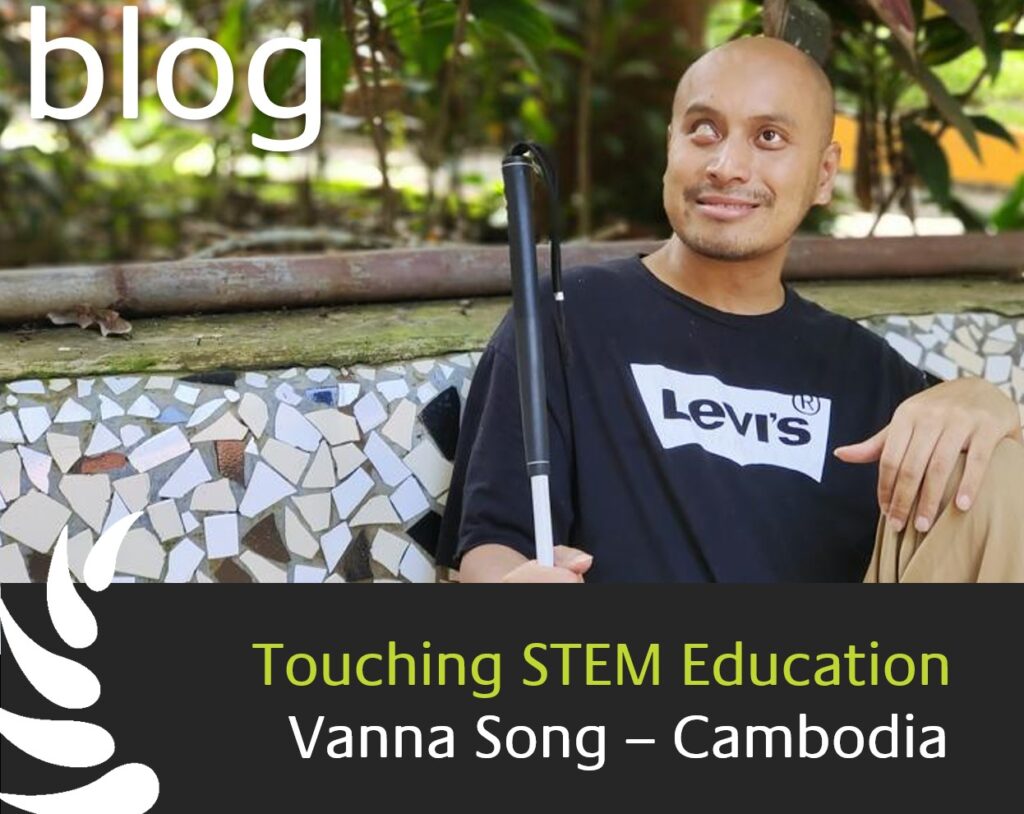I was a curious child and asked a lot of questions. Being blind, many times people would demonstrate the answers to me than just simply answering my questions. E.G., when I got a bit older, my mobility instructor let me shift gears on his car while he was driving. I can tell you his car did not stall, and no one got run over.
However, in the country my parents and other Khmers left behind, there was no room for curiosity and learning. Curiosity, and learning, among other attributes, were forbidden and even carried a death sentence.
On April 17, 1975, Phnom Penh was taken over by a group of communist guerrilla rebels known as the Khmer Rouge who wanted to return Cambodia to its former glory, before there was any western influence. It is estimated about a quarter of the population died because of the rebel’s brutality. When Vietnam entered Cambodia and helped depose the Khmer Rouge, another civil war ensued between Khmer factions. My family left Cambodia for the Thai-Cambodian border during that second civil war.
I was born in one of the refugee camps and spent the first four years of my life there, after which we resettled in the US as refugees. Like many Khmer refugees, we started out in the low-income area of Tacoma, Washington, known for its gangs, drugs, and crime.
In the third grade, I grew fascinated with science. I never really thought about STEM accessibility back then. If there was a barrier to learning, I was presented with a solution. Solutions such as a clock with movable hands, and large braille numbers so I could grasp the concept of time telling. Or something more significant like math kits that contained cubes, half and full spheres, and other items to help with grasping geometry and other elements of math. When it came to science curricula, however, I can recall just a few blind-accessible solutions. Like braille science textbooks with tables, graphics, and other visual elements or the tactile model of the human brain alongside a real one during biology class in seventh grade. But science got less accessible as it got more complicated, especially with chemistry. Still, I devoured any book, magazine, or tv show that explained concepts like lift, gravity, sound, viruses, etc.
Life was all right, but it soon came crashing down.
I did not graduate high school. One day, I showed up drunk at school after a night out with friends. I stank and staggered quite noticeably. I got home that day in the back of a police car.
This was the beginning of a low period in life. I thought about the person who sponsored me to the US and other supporters who have been with me so far. How would they feel about me throwing my future away? How did I want the rest of my future to look? Definitely, not as a burnt-out drug addict.
Eventually, I got back on track. I got myself together and graduated high school and college.
I landed a Master’s in Southeast Asian Studies to further my knowledge of Southeast Asia, from geopolitics to contemporary history. I was able to brush up on a language that would enable me to work in the region, particularly in Thailand and Cambodia.
Before I entered graduate school, I had already begun thinking about the state of STEM education for blind students in the two countries. Blind students in Cambodia told me they wanted STEM education, but it was non-existent. Could I address the issue at the policy level in the country? Or would a bottom-up approach be more appropriate?
After my master’s, and after 3 decades, I got the opportunity to return to Thailand to work with a public health organization. While there, I got the opportunity to re-familiarize with the country. I was flooded with so many thoughts, feelings, and memories. While there, I took the opportunity to speak with government officials, blind students, and other people about the state of STEM education in Thailand. They told me much more could be done. That trip cemented my decision to want to stay and work in Thailand and focus on accessible STEM education for blind students.



